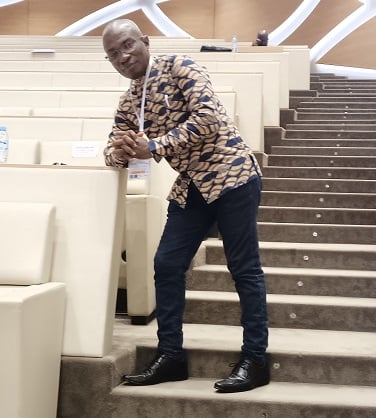The Communication for Development and Advocacy Consult Limited (CDA Consult) is spearheading an initiative for holistic health education that spans from domestic spaces to corporate environments, with the aspiration of fostering a healthier society. During a recent interview, Mr. Francis Ameyibor, the Executive Director of CDA Consult and a well-known advocate for health communication, highlighted the pressing need for a comprehensive approach to health education. He noted that in our modern, fast-paced environment—where stress and anxiety are rampant—individuals must understand that health encompasses much more than just physical wellbeing. Today, true holistic health involves the interplay between the mind, body, and spirit. As part of their commitment, CDA Consult, in collaboration with Lifeline Haven Company Limited, the National Insurance Commission (NIC), and the Africa Medical Information Centre (AMIC), is set to enhance public advocacy for holistic health practices.
Historically, health education has heavily concentrated on the physical aspects of well-being, often overlooking mental and spiritual dimensions. This narrow focus has resulted in a fragmented understanding of health that, in many cases, emphasizes treatment over prevention and holistic wellness. Mr. Ameyibor pointed out these shortcomings, stressing that the understanding of health must evolve to include the full spectrum of human needs. By addressing the complete individual—physical, mental, and spiritual—holistic health education empowers people to take proactive steps towards their well-being, enabling them to make informed decisions that promote health and prevent diseases.
In further emphasizing the benefits, Ms. Jennifer Nelson, a Preventive and Occupational Health Management Consultant and the CEO of Lifeline Haven, asserted that holistic health education can significantly contribute to reducing chronic illnesses, boosting mental resilience, and fostering more meaningful spiritual connections. She elaborated on how this educational approach not only increases self-awareness and self-care but also leads to better health outcomes, enhanced productivity, and a higher quality of life. According to Ms. Nelson, there is an urgent need to transform health education paradigms by integrating holistic well-being into curricula across educational and community platforms, while simultaneously advocating for research that further enriches the field of holistic health.
Mr. Viradia, the Chief Executive Officer of AMIC, echoed these sentiments by emphasizing the critical role that accurate, accessible medical information plays in improving healthcare outcomes across Africa. AMIC, through its Medicare Diagnostic Centre, aims to equip healthcare professionals, policymakers, and the general public with the resources necessary for informed decision-making. With a commitment to collaborative, evidence-based health improvements, AMIC plans to partner with various stakeholders—including healthcare providers, governmental bodies, and academic institutions—to amplify research, innovation, and knowledge exchange within the healthcare system.
The collaboration aimed at promoting holistic health education also seeks to advocate for integrative approaches among healthcare providers and encourage individuals to adopt holistic practices in their personal lives. The leaders involved insist that adopting a holistic perspective can create a ripple effect, transforming both individual lives and broader communities. According to Ms. Nelson, it is crucial that efforts are unified to prioritize holistic health education, thereby ensuring a future where every individual can flourish in all aspects—body, mind, and spirit.
Through these collective efforts, CDA Consult, Lifeline Haven, NIC, and AMIC are laying the groundwork for significant changes in healthcare education and delivery. The emphasis on holistic health education is expected to lead to a more informed populace capable of taking control of their health, reducing chronic illness prevalence, and improving the overall quality of life in society. By bringing together various stakeholders committed to a common goal, these organizations aim to shift the paradigm of health education from a predominantly physical perspective towards a more integrated approach encompassing the complete human experience.














